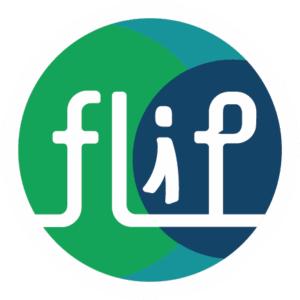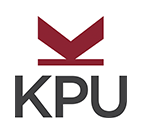Event Description
Join us for this Facilitating Learning in Person (FLIP) workshop on the beautiful Richmond campus of Kwantlen Polytechnic University (KPU).
 Settler educators often experience unease about “doing it wrong” which can discourage them from meaningfully engaging with Indigenous ways of knowing, or incorporating them into their practice. This hesitation can lead to benign resistance: a phenomena where mixed, cyclic emotions like hope, curiosity, responsibility, guilt, doubt, hesitation, and fear prevent genuine progress (J.P. Restoule 2011). These emotions often arise from acknowledged or unacknowledged settler privileges that are frequently invisible to those who hold it.
Settler educators often experience unease about “doing it wrong” which can discourage them from meaningfully engaging with Indigenous ways of knowing, or incorporating them into their practice. This hesitation can lead to benign resistance: a phenomena where mixed, cyclic emotions like hope, curiosity, responsibility, guilt, doubt, hesitation, and fear prevent genuine progress (J.P. Restoule 2011). These emotions often arise from acknowledged or unacknowledged settler privileges that are frequently invisible to those who hold it.
The result is a surface awareness of Indigenous issues that misses deeper engagement with how settlers have benefited from systemic injustice, cultural erasure, and intergenerational trauma. Under the guise of creating space for marginalized voices, this can unintentionally shift the responsibility of dismantling systemic racism onto those most impacted. The result is often the overburdening of Indigenous partners, who are frequently asked to guide settler educators on their personal journeys of decolonization and reconciliation.
In this collaborative session, members of the 2024 SoTL Canadian Collaborative Writing Group will invite participants to explore these dynamics through their own experiences as settler educators.

Drawing on resources such as The Indigenous Knowledge Implementation Packsack, participants will:
- Share experiences of unease and other forms of benign resistance, and explore ways to address and reconcile with them
- Reflect on practical and personally meaningful strategies for decolonizing their own field or practice
We would like to thank KPU for their partnership in bringing this workshop to B.C. post-secondary educators.
Register Now!
This workshop will not be recorded.
References
Restoule, J. P. (2011). Everything is alive and everyone is related: Indigenous knowing and inclusive education.
In C. Rolheiser, M. Evans & M. Gambhir (Eds.), Inquiry into practice: Reaching every student through inclusive curriculum practices (pp. 17–18). Ontario Institution for Studies in Education, University of Toronto.
About the Facilitators
Your FLIP facilitator is Bhuvinder Singh. He will also be joined by three asynchronous facilitators:
- Monica Palkowski (she/her) Education Programs Associate, McMaster University
- Shawn Xiong (he/him) Instructor & Teaching Lab Coordinator, Biochemistry & Molecular Biology Dalhousie University
- Kate Thompson (she/her) Educational Developer (SoTL), Centre for Learning and Teaching Dalhousie University
Bhuvinder Singh Vaid (he/him/his) is an Educational Developer at the Centre for Teaching Excellence (CTE) at Capilano University. Bhuvinder’s nearly two decades of work in higher education and consultancy with subject-matter experts are informed by his recognition that teaching and learning exist as uniquely relational practices that are not easily standardized. This understanding has informed his work studying the positionality of seemingly straightforward educational concepts such as safe spaces, efficiency, free speech, and currently, how to pedagogically engage with Coast Salish knowledge in a respectful and meaningful way.
This workshop was co-developed by Bettina Boyle (she/her). Bettina is an Educational Developer at the CTE at Capilano University. She also currently teaches cross-cultural business and organizational behaviour in the School of Business and the School of Legal Studies. As an uninvited guest on the unceded traditional territories of the xʷməθkʷəy̓əm (Musqueam), Sḵwx̱wú7mesh (Squamish) and Səl̓ílwətaʔ/Selilwitulh (Tsleil-Waututh) Peoples, she is grateful for the Coast Salish Peoples’ stewardship of the land and for their resilience in the face of colonization and adversity. Originally from Denmark, Bettina continues to unlearn and learn from the land and the local Nations, and she is committed to uplifting and centering Indigenous voices in her teaching, facilitation, consultations, and workshops.
